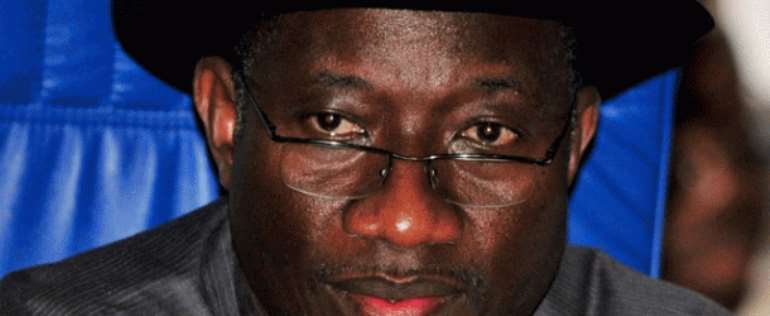Jonathan: Nigeria Needs N350bn Annually for Water, Sanitation Targets

President Goodluck Jonathan said yesterday that the Federal Government needs N350 billion annually to meet the water and sanitation needs of Nigerians.
He stated this at the opening of a two-day Presidential Summit on Water tagged, Innovative Funding of the Water Sector, which opened at the Banquet Hall of the State House in Abuja.
Minister of Water Resources, Mrs. Sarah Ochekpe, added that despite the support the government has given to the development of a roadmap to reform the water sector, there is a large need for funding as the appropriations made to all the tiers of government cannot bankroll the gigantic project.
The president had said that the commitments of his administration to the sector were already yielding positive results, noting that in the last two years, over N84 billion had been spent in addition to the another N80.4 billion expended on dams and irrigation schemes across the country.
He listed the Goronyo Dam in Sokoto State, which gulped N3.4billion; Kashimbila Dam, which took N38 billion, Gurara Dam and irrigation project, N36billion and Ife Dam on which the sum of N3billion was spent, as some of the commitments made by his administration.
He disclosed that the Federal Government proposed to spend N39 billion in the 2013 budget on water related projects, 'in addition to funds the sector will receive from special intervention funds.'
He however maintained that despite these huge investments, the purpose of the summit is 'to explore new investment opportunities in this critical sector by examining how water projects can attract more financing and new technologies, from both public and private sources.'
Jonathan tasked the summit to attempt to leverage the nation's water resources to be in tandem with that of its partners and the international community to strengthen the nation's effort towards meeting the set targets in 2015. He also asked participants to identify issues militating against optimal water infrastructure development and 'its sustainability, as well as evolve innovative funding to ameliorate this situation.'
While charging the summit to redefine the intervention approaches, facilitate linkages and engagements and critically review the present financing and investment models in the sector, the president asked the participants to also determine which model works and the opportunities that exist for leveraging resources from non-traditional sources in the light of growing competing needs.
Ochekpe, in her welcome address, said 'the implementation of the road map has brought to the fore the huge funding gap in the sector, maintaining that annual appropriations alone by the three tiers of government will not be sufficient to develop the sector in line with global trends.
She said her ministry, aside completing many projects and initiatives that are billed to be commissioned soon, also established a Public-Private Partnership (PPP) unit in 2012, stressing that the 'unit is working along with the Infrastructure Concession Regulatory Commission (ICRC) and the Nigeria Infrastructure Advisory Facility (NIAF) and is presently screening various water sector projects for concessioning.'
Senate President, David Mark, who lamented the prevailing water supply situation in the country, in a remark, submitted that the summit 'must critically evaluate the issues that afflict our water sector ' such as 'poor operation and maintenance, insufficient technical capacity and persistent failure in policy implementation.'
'These failures have dramatic consequences on the lives, livelihoods and development of Nigeria and Nigerians. Sadly, millions of Nigerians who have no access to potable pipe borne water depend on dirty and contaminated water for domestic use and millions die every year from water borne diseases,' he said.
Those who graced the opening of the summit which ends today included important dignitaries such as Vice President Muhammad Namadi Sambo, former President Olusegun Obasanjo and his Ghanaian counterpart, John Kufuor. Others were the Egyptian Minister of Water and Irrigation, Dr. Mohammed Bahaa El-Din, governors, ministers, water sector experts, legislators and captains of industries.
